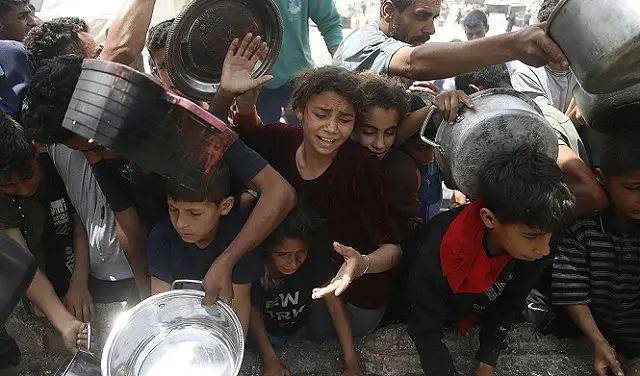
Israel Allows Limited Gaza Aid After 10-Week Blockade
After a prolonged 10-week blockade, Israel has announced the limited entry of food aid into the Gaza Strip. This decision comes in response to escalating international pressure and dire warnings from the United Nations about an impending humanitarian disaster. The blockade, which began on March 2, 2025, had restricted all humanitarian assistance, including food, medicine, and fuel, to Gaza's 2.3 million residents.
The United Nations World Food Programme (WFP) reported that its food stocks in Gaza were completely depleted, leaving over 400,000 people without aid. Local kitchens, which had been providing meals to the community, were also running out of supplies. The WFP further noted that food prices in Gaza had surged dramatically, with the cost of a 25 kg bag of wheat flour increasing by 400% compared to pre-blockade prices.
The blockade has had severe consequences, particularly for vulnerable populations such as children and the elderly. The Gaza Health Ministry reported that at least 60,000 children were at risk of serious health complications due to malnutrition. Additionally, over 1 million children were going hungry every day, and 52 individuals, including 50 children, had died due to hunger and malnutrition.
In response to the crisis, Israel has allowed a limited number of aid trucks to enter Gaza through the Kerem Shalom crossing. However, the United Nations and humanitarian organizations have expressed concerns about the effectiveness and neutrality of the new distribution system, which involves armed contractors overseeing aid delivery. Critics argue that this approach may violate international humanitarian law and could exacerbate the crisis.
Despite the easing of the blockade, the humanitarian situation in Gaza remains critical. The United Nations has warned that the limited aid allowed into the territory is insufficient to meet the needs of the population. Humanitarian organizations continue to call for unrestricted access to Gaza to provide essential services and prevent further loss of life.
The international community has expressed outrage over the blockade and its devastating impact on Gaza's civilian population. Countries such as Germany, France, and the United Kingdom have condemned the blockade as“intolerable” and warned that it is increasing the risk of starvation, epidemic disease, and death.
As the situation continues to deteriorate, it is imperative that all parties involved in the conflict prioritize the well-being of civilians and adhere to international humanitarian law. Unimpeded access for humanitarian aid is essential to alleviate the suffering of Gaza's residents and to prevent further escalation of the crisis.
ShareFacebook Twitter WhatsApp Email Print Telegram
Legal Disclaimer:
MENAFN provides the
information “as is” without warranty of any kind. We do not accept
any responsibility or liability for the accuracy, content, images,
videos, licenses, completeness, legality, or reliability of the information
contained in this article. If you have any complaints or copyright
issues related to this article, kindly contact the provider above.


















Comments
No comment